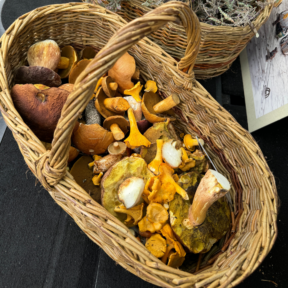Blogs
Stress Awareness Month

Stress can affect us all. Spotting the signs and getting the help needed is vital for good health. There are many different signs of stress including:
- Aches and pains
- Chest pains, feeling like your heart is racing
- Headaches or dizziness
- Stomach problems
- Difficulty concentrating
- Struggling to make decisions
- Constantly worrying
- Being forgetful
- Sleeping too much or too little
- Eating too much or too little
During #StressAwarenessMonth we have spent some time thinking about how stress can effect us, what our triggers are and what coping mechanisms we can use. We have spoken to Carole and Dorrianne about how we can help ourselves deal with stress through our diet and using mindfulness. As well as sharing a daily top tip to help you deal with stress.
Carole has shared how what we eat can effect our mood and what we can do to help ourselves.
Stress and the Body’s Relationship with food
Eating a balanced and healthy diet is a key to helping our bodies manage the physiological changes caused by stress. Carole shares the foods that help us cope with stress.
The adrenal glands that lie on top of each kidney produce the main stress response hormones, adrenaline, noradrenaline and cortisol. Nutrients that support the adrenal glands.
- Vitamin C found in fresh fruit and veg, stored in the adrenal gland and needed to make cortisol.
- Magnesium found in dark green leafy vegetables, wholegrain, nuts and seeds, dramatically depleted in times of stress.
- B vitamins found in wholegrain, nuts and seeds particularly B5 which directly supports adrenal cortex and hormone production.
- Avocado, contains omega 3 fatty acids, known to reduce stress and anxiety.
- Broccoli is a source of magnesium, vitamin C and folate rich in sulforaphane which could have a calming effect.
- Dark chocolate is rich in antioxidants.
- Eggs, contain vitamins, minerals, amino acids and antioxidants needed for a healthy response.
- Fatty fish, such as mackerel, herring and salmon contain omega-3 fats and vitamins, nutrients that have shown to reduce stress levels and improve moods.
- Kimchi, fermented vegetables containing probiotics with interact with gut bacteria and have beneficial effects on your mood.
- Sweet potatoes, contain vitamin C, potassium aiding the body’s stress response.
- Shellfish, such as crab, crayfish and mussels contain taurine which ca help your mood.
There are also ways to help your body cope with stress
Start the day with a healthy breakfast avoiding toast and jam or a cereal that is high in refined sugar. Instead eat eggs or oats as the slow-release carbohydrates contained in these provide you with useable energy.
Eat at least 3 regular meals a day with at least 5 portions of fruit and vegetables over the day, eat healthy snacks in between.
Try not to skip meals, cortisol is released to increase energy which causes stress on the body and can increase anxiety and tiredness.
- Stay hydrated, drink at least 8 glasses of water a day.
- Eat fresh homemade meals rather than convenience food.
- Avoid too much caffeine, try chamomile tea, a natural stress reducer and at bedtime have a warm milk drink helping you get a good night’s sleep as it promote feelings of warmth and calmness.
- Avoid excess alcohol.
How Mindfulness can help us cope.
We have also looked at ways to help deal with stress through Mindfulness. Dorrianne has shared some great tips to help us all.
What is Mindfulness?
- Creating a state of being in the moment.
- Encouraging self awareness.
- Giving a sense of being without judgement.
- It restructures your brain from creative to rational.
Mindfulness Top Tips
Reactions such as stress are not caused by external factors/events. They are caused by our mind’s way of interpreting our thoughts.
- Write down everything you have accomplished in your day even if it doesn’t feature on your to-do list.
- Practicing breathing exercises at least once a day or when you notice yourself getting stressed.
- Break your situation down into small achievable outcomes and recognise what you can and can’t control.
- Take yourself away from the cause of your stress and talk it through with somebody who will help you rationalise.
If you’re struggling with stress, there is a lot of help available through the NHS, remember it’s good to talk.




